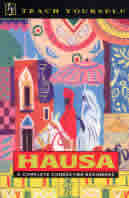

Table Of Contents
Last Updated
Auren Biya {aure marij peiment}
Marriage Payments - How much to pay?

Auren Biya {aure marij peiment} - Marriage Payments - How much to pay?
In hausa, Marriage Payments (auren biya | auren sadaka); marriage of exchange (auren mutasaya); and marriage in which the husband pays regular visits to the wife in her home (auren daukisandanka - 'hausa marriage of take-up your staff and walk' or 'marriage of take-up your stick') or auren takalmi (marriage of shoes).
Payment [peiment]; when shall I get payment? yaush zan samu biya? Pay [pei]
(biya); how much to pay? nawa za a biya? pay attention, mai da hankali, saui are I'll pay him back, zan rama masa. ladan aiki, sati, albashi.
It must be stated that these are not neat marriage categories. For example, the auren zumunts (not aure kommune as seen in the
aure dadi or aure atika films) also include preferred marriage in which spauses of certain occupational groups are involved.
Paul Biya Types of Auren Marriage Payments
Paul Biya's eight types of auren marriage payments includes, broadly, marriage of neighbours called auren zumuntar mukotaka.
Paul Biya noted eight different types of auren zumunta marriages based on parallel and cross-cousin marriages, kinship,
institutionaled friendship, neighourliness and on occupational grouping.
Hausa girls marry normally at about 14 years, before which time, if betrothed, they received gifts in money (kudi in hausa),
even as early as from six years.
The type of Hausa marriage (hausa traditional marriage) may also indicate the age of the bride.
For instance, auren baiko (marriage engagement) occurs normally between 13 to 14 years and is normally the first marriage,
while auren tsintuwa hardly ever occurs as the first marriage of the woman or among the wealthy or top politicians, unless in an
expensive way.
Of course where auren tsintuwa involves the marriage of prostitutes (or "lost property"), usually inexpensive, their ages
must be advanced.
Auren mutsaya (Nigeria social structure or what makes Nigeria a social system) is the least prestigeous. This marriage of
exchange involved the usual form of marriage which the master arranged for his slave or one arranged by unrelated immigrants.
Post-martial residence is normally virilocal among the Hausa except in the case of auren daukisandanka.
By Hausa tradition, girls marrying for the first time are required to be virgins for example those involved in
auren baiwa (marriage grant) and auren gata (marriage privileges).
Otherwise the husband beats the bride, complain to her parents, and symbolizes the fact by hanging a broken calabash by their house.
A girl having pre-martial virginity got more respect and prestige. Ceremonies marking a man's or woman's first marriage are different
from those involved in a second and subsequent marriages.
Also, there are differences in the time interval required before marriage payments are made and the bride escorted to her marital home.
These features of Hausa marriage processes a major part of Mary F Smith's (or MF Smith; born in the small town of Karo)
account of one Hausa woman's version, Baba of Karo A Woman of the Muslim Hausa, publisher: Yale University Press
(September 10, 1981); ISBN-10: 0300027419; ISBN-13: 978-0300027419;
Which Sai Baba Kripa Karo talks about her marriages and interactions with hundreds of relatives, Hausa domestic life, slavery,
bosom-friends, co-wives, praise-singers, tam-tam players, farming and explains Hausa rituals.
Basically, with Baba of Karo book, life was tough, hierarchical structures unforgiving, and social etiquette full of constraints.
This and other accounts of Hausa marriage refer to several stages accomplished before a marriage is contracted; betrithal, giving gifts
and rendering services to the bride's parents;
Solicitation of parental agreement, marriage payment and its division amongst bride's paternal and maternal kinsmen, prayers and rituals
on a wedding day and pre-wedding advice on the pending role of family members, are regular features of traditional Hausa marriage.
A man and a woman normally state and show their consent to be married.
But where a father arranged a marriage and one or the other partner refused to be married, even in marriage of almsgiving
(the practice of giving money or food to poor people) (auren tsintuwa), he or she may be persuaded by the parents and other elders
to do so.
A girl on escort to her marital home is given grain, cakes made from beans, locust and groundnuts, salt, oil, rice and some utensils
by her parents and well-wishers.
Hausa marriage payments vary from nothing, as in the case of auren sadaka, to about £200 paid in case of marriages
made by wealthy people.
Hausa marriage expenses include gifts of money and cloth to the bride particularly at festivals, gifts to the girls maternal as well
as paternal kinsmen, gifts to the brides parents and their kinsmen, and also the legal payment, Sadaki.
Auren sadaki is the only legally necessary cash gift required of a man under Islamic law to establish teh contract and status of marriage.
The bride's parents reciprocate withgifts to the bridegroom on some occasions but a woman pays a dowry, gara, to the bridegroom
and his parents.
Gara consists of gallons of palm oil, guinea corn, rice salt, groundnut oil locust-bean cakes, millet metal bowls or basins,
decorated enamel plates, decorated mats.
Also from rich families, gara includes wooden bed, mattress, pillow, table, stool, and box, all of which may totalabout £12,
meant to compensate the marriage expensives by the bridegroom's family.
Where no marriage payments are made as in the case of auren sadaka, the mallam returns some token gifts of gratitude to the girl's family.
Such gifts include salt, grain, rice, guinea corn, and implicate the man's consent to the marriage contract.
It is not in every case that a Hausa girl enters marriage voluntarily. For example, in auren sadaka, a bride may have no previous
knowledge of the marriage.
Where a girl disliked the marriage, then she could cause suicide by jumping into a well, or she could run away and be 'lost' or she could
seek divorce with her parents consent.
Marriage among the Hausa people thus follow the Maliki (not maliki iraq nor nouri al maliki) law by which marriage
is required to be a contract between guardians (wali; not dili wali girlfriend nor video wali) of the partners.
Such marriage is celebrated in marriage feasts (bili, not bilibili) independently by the bride's and by the groom's families.
On these occasions,gifts received are distributed to both thenear and distant kinsmen of the bride or bridegroom as the case may be.
At whatever level of the family, the man has the authority over his wife or wives and children, and over his younger brothers and sisters.
Inlaw relations involve a deference, a mechanism by which order is maintained in the immediate and wider family circles.
A man respects his inlaws and elder siblings and provides the essentials to his wife or wives such as shelter, food, medicine, cloths, etc.
The wife visits her parents with his permission. The husband satisfies the wife or wives sexually but he is free to have sexual relations
with other women who are not concubines.
He and his wife have equal share from the marriage payments on their daughters but he provides the marriage payments and tax for his sons, and
gifts as fees for his children's koranic school.
Female friends and the wife's kinsmen may visit her with or without the husband's permission. On the other hand, a wife must obey and respect
her husband. Wifes cook or sweep and do domestic work in rotation.
They obey the man's chief wife and their husband's parents, care for their babies whom they nevertheless surrender if and when divorced.
Wives are not expected to be adulterous; they are not to carry out any abortion. A husband and his wives may not eat together.
Men thus take charge of order in the house and engage in physical works and occupations such as inpot making, farming, weaving, carpentry,
marketing, fishing and hunting. Women cook and engage in domestic duties.
These female and male duties indicate social interdependence even at the family level.
Auren Nollywood Latest Classic Movie 2025 2026 Favourite
Here is a couple of most favourite Auren 2026 Tsintuwa/ abogados vigo/ www auren es/ auditores/ aparthotel ca | auren/ consultores/ auren bags/ prullans/ auren de/ auren com/ trabajar en auren/ bilbao/ empleo/ auren sa/ kft/ barcelona/madrid/spain/ and even for you to check out at google video sharing website Youtube.com

